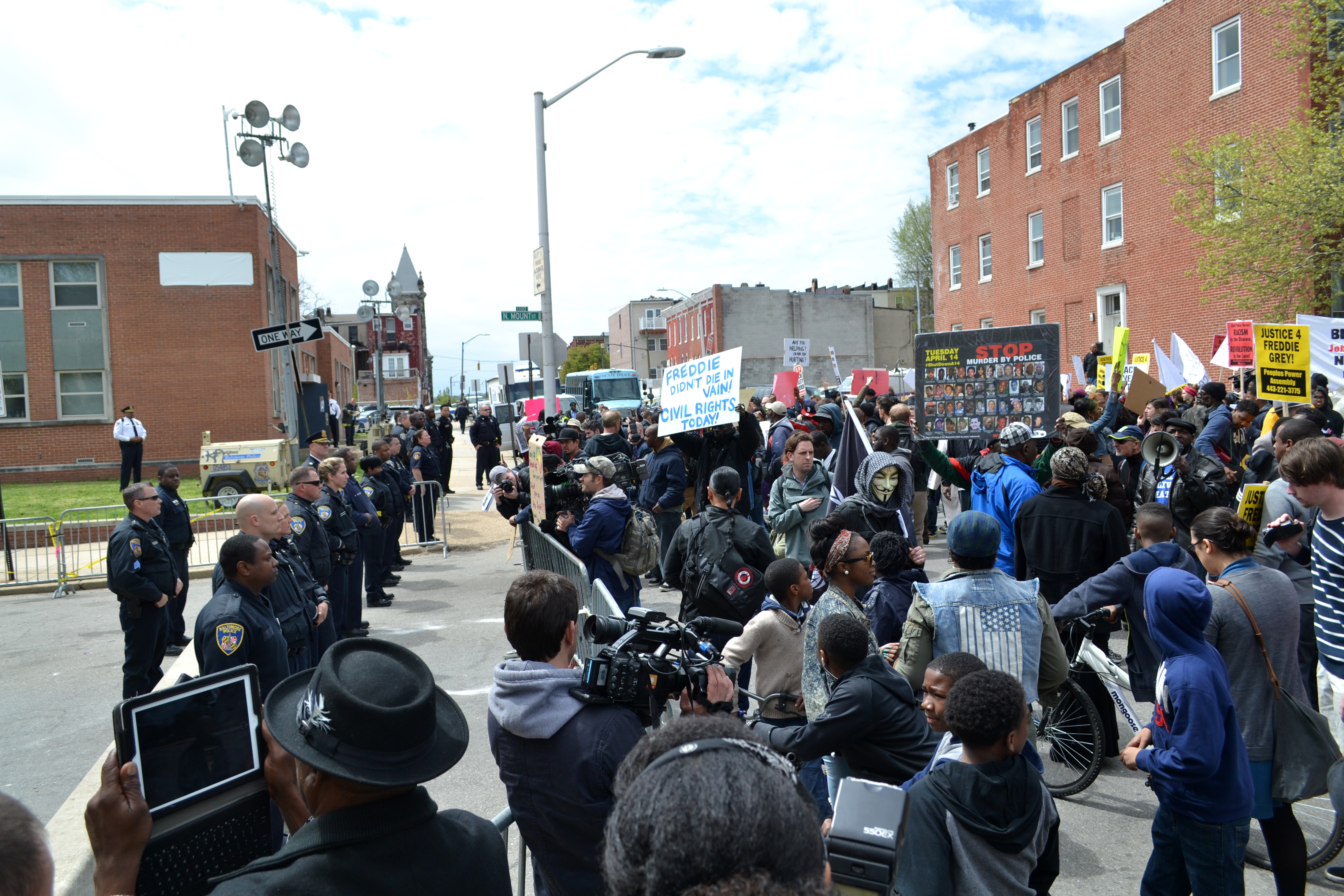
Image by Jessica Lea/DFID
Most people in the U.S. have seen the spine-chilling stories on their TVS and have read about the magnitude 7.8 earthquake that struck Nepal on April 25, killing more than 5000 people, and injuring thousands more.
It is a tragic story, like the recent tsunamis that also destroyed the lives of thousands of innocent people in the wrong place at the wrong time.
The only bright spot in these tales of overwhelming natural disaster is the magnitude of the international relief effort.
While my heart and often my money go out to efforts to help survivors and rebuild areas hit by these unaccountable natural disasters, what keeps me awake at night is the deadliness of racism in my own country.

Image by Veggies and licensed under the Creative Commons Attribution-Share Alike 3.0 Unported license.
I believe there are people who would rather watch TV news stories about earthquakes and tsunamis than learn all they can about the over-incarceration, and human-rights defying use of prolonged solitary confinement of young black men in this country and the ferocious murdering of young black men and women, many of whom are mentally ill, by police. They would rather watch coverage of tsunamis and earthquakes than delve into the reports on police in their country murdering and torturing people because of the color of their skin.
If anyone out there needs a powerful reminder of this nation’s relentless and often deadly racism, a powerful novel on the issue is Richard Power’s unrelenting novel, “The Time of our Singing” https://www.goodreads.com/book/show/23007.The_Time_of_Our_Singing.
And in case you want to read about a few recent examples of police brutality and wonder why we don’t fight back against them with the same effort being expended in Nepal, read
and the more familiar case of Freddie Gray: http://www.theguardian.com/us-news/2015/apr/25/freddie-gray-death-triggers-frustration-baltimore-police

